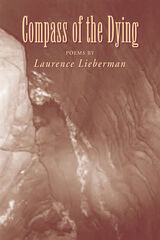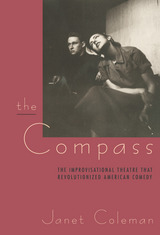
Plato’s solution was a map-and-directory combo that used direction and distance from a local business center to give farmers a real address, just like city dwellers. He patented his invention called the “Clock System” and tried to sell it to the Post Office Department. What follows is a tale of persistence and failure as rural farming declined and technology and capitalism overtook John Byron Plato’s chances at geographic immortality.

The poems of Compass and Clock take their inspiration from the intersection of the natural world and the human, exploring the landscapes in which those intersections occur. Those landscapes range from David Sanders’s native midwestern countryside to the caves of Lascaux and an enchanted lake where relics of lost lives are washed ashore. Yet, the true source of the poems’ vitality is Sanders’s attention to the missed or misread moments, those times when the act fails, and the perceived clashes with the actual.
Here, the satisfying pairing of elegance and vulnerability invites the reader to tour those uncanny landscapes from which one returns irrevocably changed—refreshed, but wistful. In a review of his earlier limited-edition work, Time in Transit, the Hudson Review called David Sanders “a poet to watch.” With the Swallow Press publication of Compass and Clock, we have the realization of that promise.

Using the Columbia River Basin in the Pacific Northwest as a case study, Kai Lee describes the concept and practice of "adaptive management," as he examines the successes and failures of past and present management experiences. Throughout the book, the author delves deeply into the theoretical framework behind the real-world experience, exploring how theories of science, politics, and cognitive psychology can be integrated into environmental management plans to increase their effectiveness.

When Laurence Lieberman writes of Guyana or islands in the Dutch West Indies, he excavates, explores, even exhumes the essence of the place. In the flora and fauna, in the rural cafes and ruins of churches and crypts, in the taste of iguana soup and the look of light through stained glass, Lieberman unfolds an exquisite atlas of the senses.
The awe of encounter, the raw impact, beauty, and sometimes the brutality of both the surroundings and the people fuel this poetry. Whether he meets an iguana hunter, a bricklayer, a witness to the United States–led Grenada invasion, or a classical composer, Lieberman gives the reader a vivid combination of his own wit and surprising observations mingled with the speech of each character.
Folk tales, legends, and island myths play a great role in his newest work. In the eddies of a river in Guyana, Lieberman dares river demons. On the island of Aruba, he hears the chants and work songs of long-dead miners in an abandoned gold mine. He briefly loses himself when he stares into the mirror of a well once frequented by slaves on Bonaire.
Coupled with natural forces—floods, volcanic eruptions, constant rains—these folk tales and the stories of the islanders’ lives create a “wedding of sun and rain,” and a map to the troves of the Caribbean hidden beneath a rich and often violent history.

"For anyone who is interested in theatre, underground theatre, improvisational theatre, and the sheer madness of trying something new with a repertory group, The Compass will prove a welcome history with fascinating details."—Norman Mailer
"Janet Coleman has done a spectacular job of capturing the history, the almost alarmingly diverse cultural influences, and the extraordinary people who made up the Compass."—Neal Weaver, Los Angeles Village View
"Engrossing. . . . An open window on a part of the theater that should be known."—Arthur Miller
"A valuable chronicle of an important chapter in the history of comedy and theater."—William Wolf, New York Observer
"The eruptive, disruptive talents who made the theater memorable are the same ones who make The Compass a good read."—Jay Cocks, Time
"A moving, inspirational, anecdote-studded feast."—Publishers Weekly


READERS
Browse our collection.
PUBLISHERS
See BiblioVault's publisher services.
STUDENT SERVICES
Files for college accessibility offices.
UChicago Accessibility Resources
home | accessibility | search | about | contact us
BiblioVault ® 2001 - 2024
The University of Chicago Press









